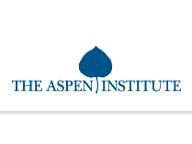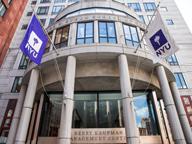Excerpt from
Poets & Quants-- "Ranking third this year, NYU Stern has consistently moved up our rankings over the past few years, placing sixth in 2019 and fourth last year. NYU finished eighth in admissions standards, fifth in academic experience, and third in employment outcomes. Like other schools towards the top of this year’s rankings, Stern had tough admissions standards, admitting just 12.7% of applicants. Students in the latest fall cohort posted the second-highest average SAT scores at 1,507. Of course, the school also boasted some frothy career outcomes with 96.3% of the Class of 2020 having at least one business-specific internship before graduation and 95.2% with full-time employment within three months of commencement. Average starting salaries hit $80,064, making Stern grads one of just four schools to report a annual paychecks of at least $80,000 along with Wharton, Virginia McIntire, and Carnegie Mellon’s Tepper School of Business."
















